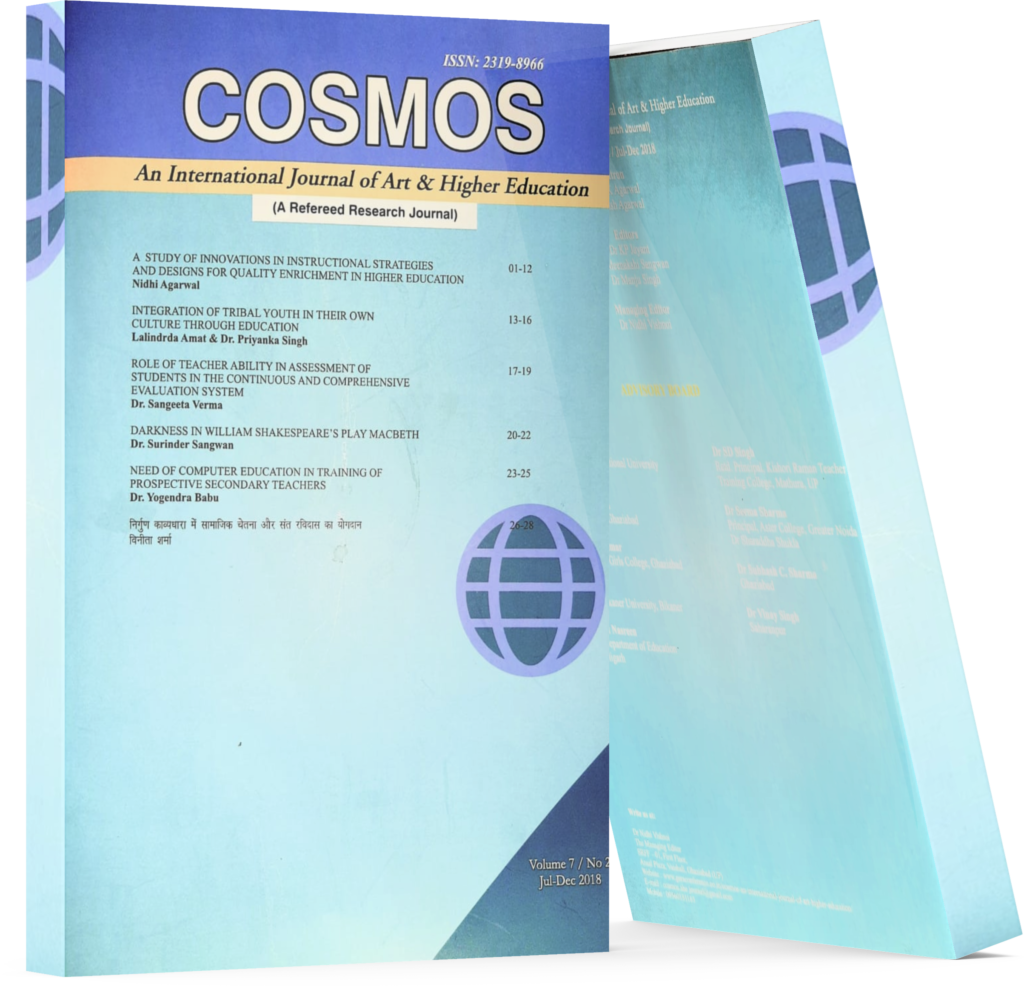Comparative Study On Teaching Learningpedagogyofmooc Or Blended
Keywords:
Massive Open Online Courses, Educational Technology, Open Learning E-learning, QualitativeMethodology.Abstract
The proliferation of Massive Open online courses (MOOCS) in recent years has generated much debate. MOOCs have been presented as technology-based educational practices, but many researchers questions if thiskind of open courses really respects some of the consolidated principles behind the education offeredat universities. In light of this situation, consulting the teachers most closely tied to this type of course canprovide an authoritative view of the issue and can allow the most important elements to be highlightnedinorder to carry out further research. Using qualitative methodology based an open questionnaire, this workpresents the options and perceptions of teachers and lecturers in educational technology regarding these newcourse key elements. These key elements are analyzed through analyzing its controversial definition, their pedagogical advantages and limitations, the function of tutor in a MOOC and their assessment. In additionacomparison is made between the contributors of teachers from a traditional universities with a face tofacemodel and those from a distance university, which is entirely based on a virtual training offer and which has agreater possibility of coming into direct competition with these Massive open online course.
Downloads
References
Agarwal, Nidhi, (2018). “A study of innovations in instructional strategies anddesigns for quality enrichment in HigherEducation”. Cosmos: An International Journal of Art & Higher Education, 7(2), ISSN: 2319- 8966.
Agarwal, Nidhi and Jaiswal, Sushma, (2019). “A Study at organizational commitment of educator in school”. International Journal of
Multidisciplinary Education and Research, 4(1); 39-41.
Agarwal, Nidhi and Mandal, T., (2019). “A Study on Teacher Expertise and Schoolroom Processes”. Globus Journal of Progressive Education, 9(1); 7-9. ISSN: 2231-1335.
Agarwal, Nidhi and Pundir, Neelam, (2019). “A Comparative Study of Personality Traits
and Thinking Styles of ICT Users and Non
Users”. International Journal of Dynamic
Educational Research Society, 1(1); 74-83.
Agarwal, Nidhi and Singh, Alka, (2018). A
Study on Teaching Major Program Work with
Essential Degree. Globus Journal of
Progressive Education, 8(1); 1–4.
Agarwal, Nidhi and Verma, Monika, (2019). “A Study on Taxonomy of Innovations”. Globus An International Journal of
Management & IT, 11(1); 57-64, ISSN: 0975- 721X.
Agarwal, Nidhi and Gupta, Jayanta Das, (2018). “Impact of high school on social
development”. International Journal of
Advance Research and Development, 3(4);
-188. 8. Agarwal, Nidhi and Jaiswal Sushma, (2018). “A Study On Job Satisfaction Among Female
Teachers”. Globus An International Journal of
Management & IT, 9(2); 1380-1382.
Chandra, G., Gupta, R. and Agarwal, N., (2020). Role of Artificial Intelligence in
Transforming the Justice Delivery System in
COVID 19 Pandemic. International Journal on
Emerging Technologies, 11(3): 344–350.
Kumar, Puneet, (2008). “A Global Change in
Education through Information Technology &
Communication”, Gyanodaya: The Journal of
Progressive Education’, pp 22-26.
Kumar, Puneet, (2009). “Convergence of Rural Marketing Strategies and Trends in Developing Economics”. Globus - An International Journal of Management and IT, 1(1): 61-66.
Kumar Puneet and Shagun, Pooja, (2009). “Operation Research Endorsing The Social Transformation with Management and Information Technology Convergent”. IIMT Business Review, 1(1): 47-52.

